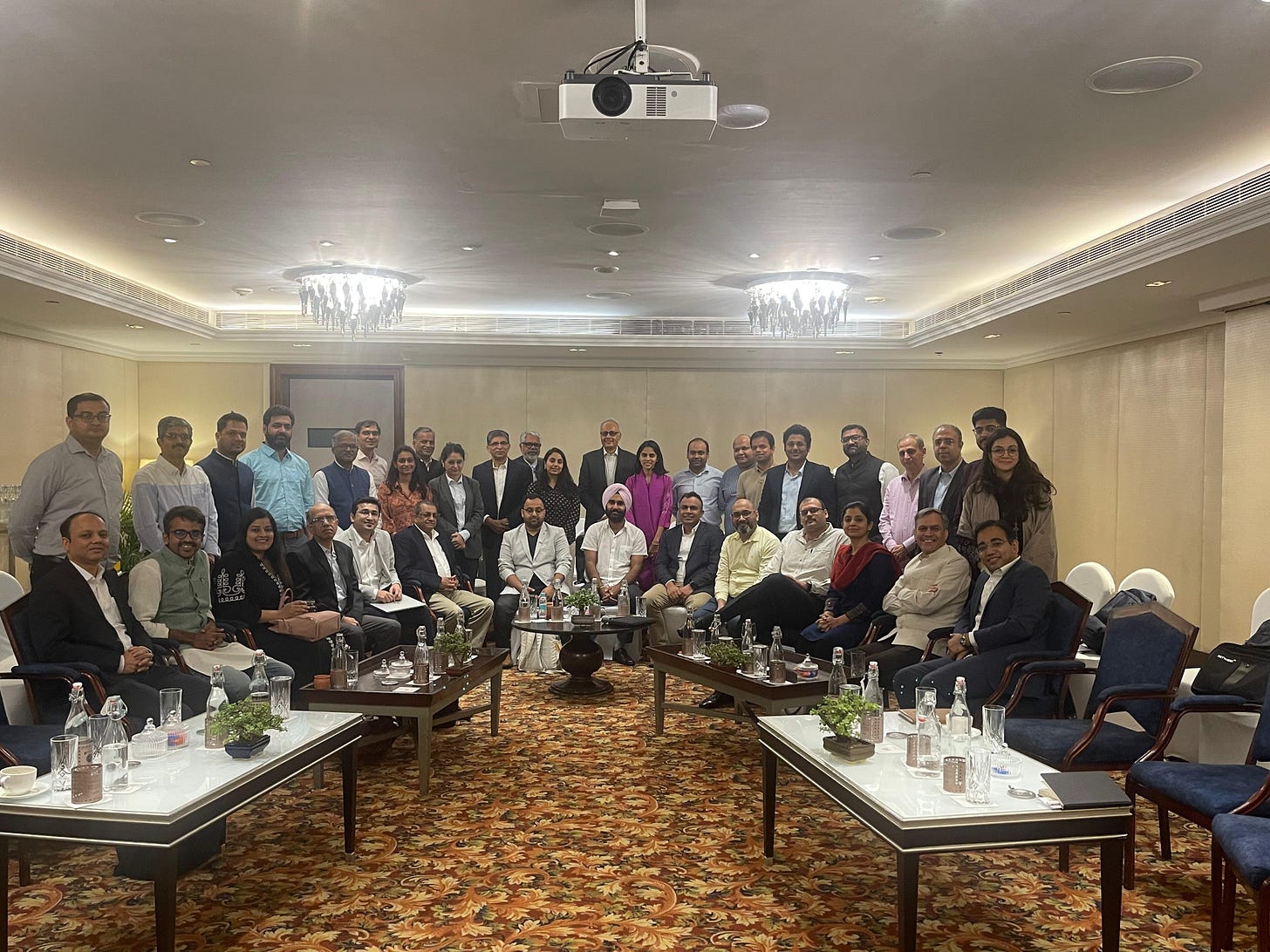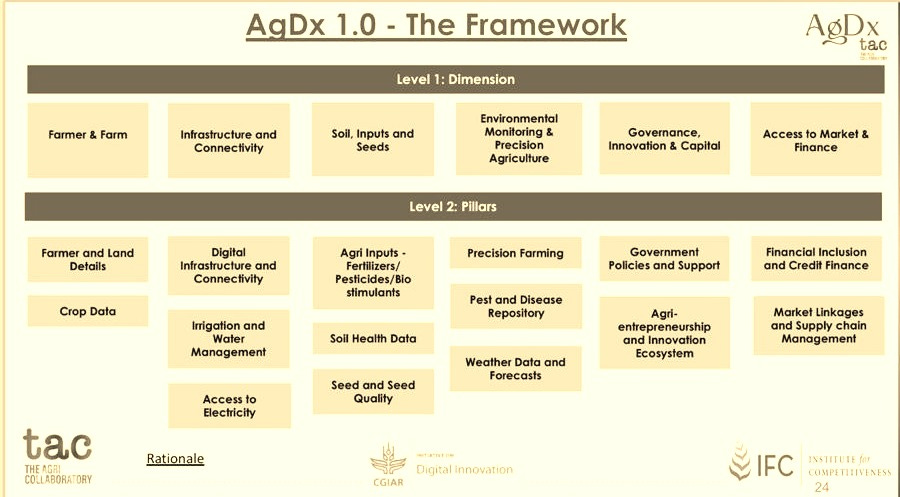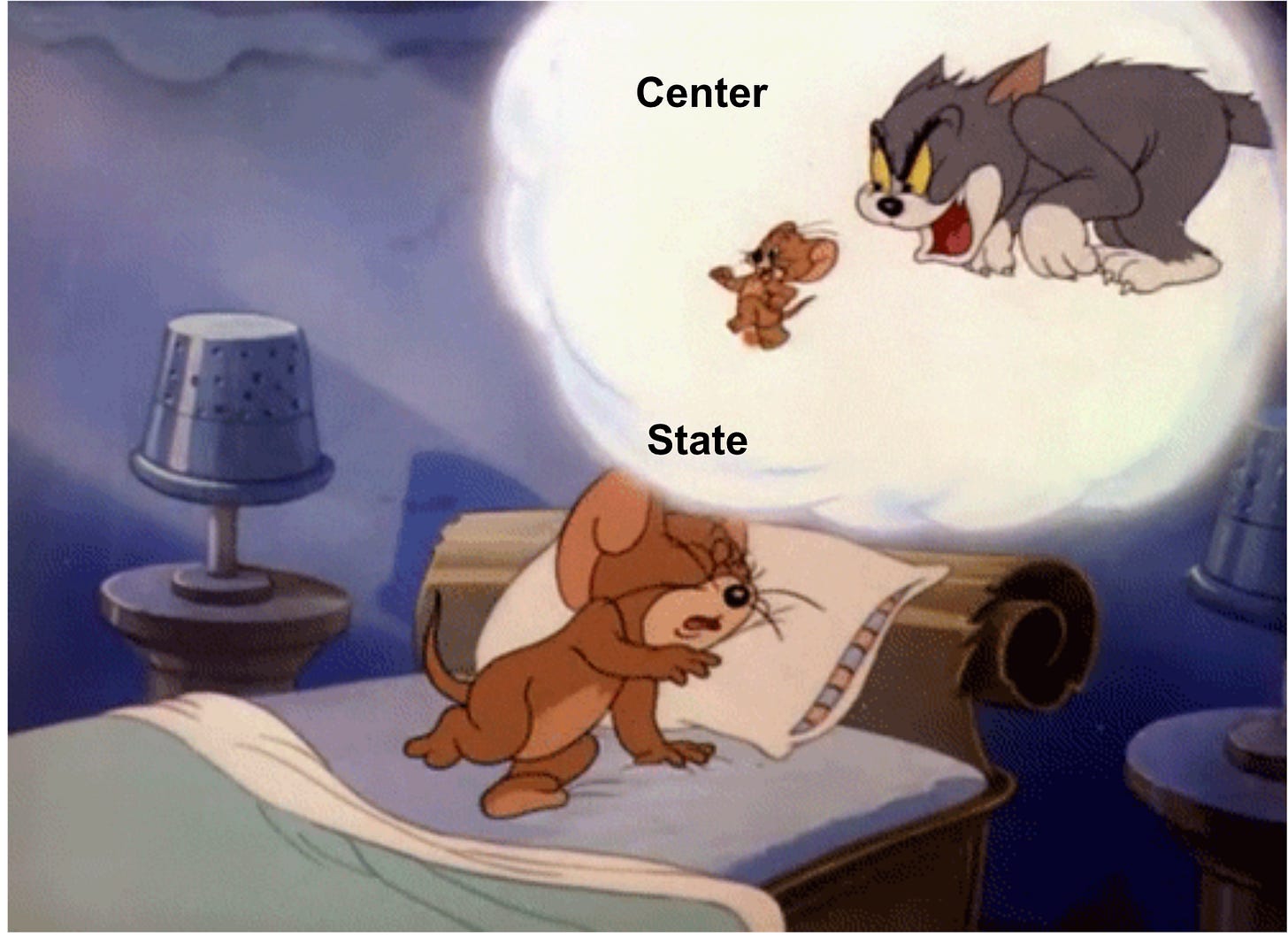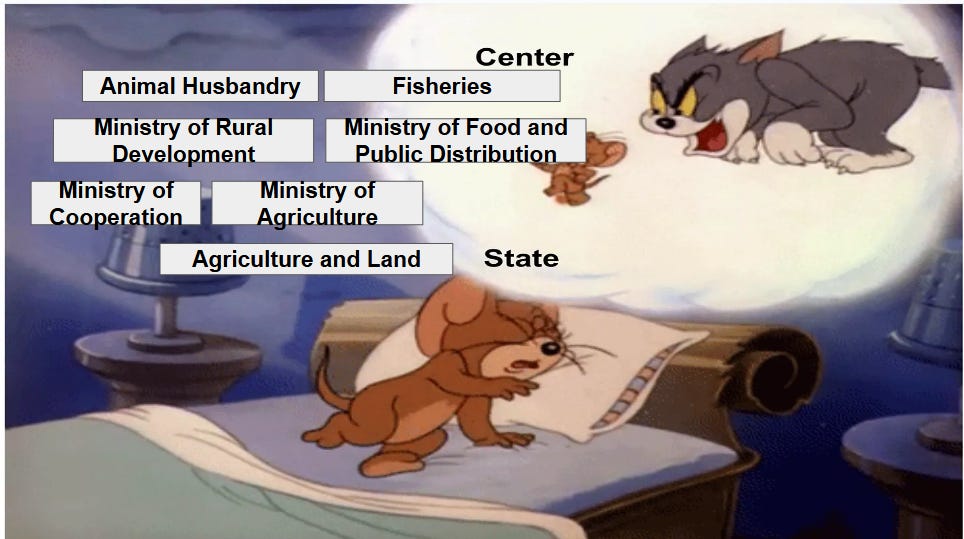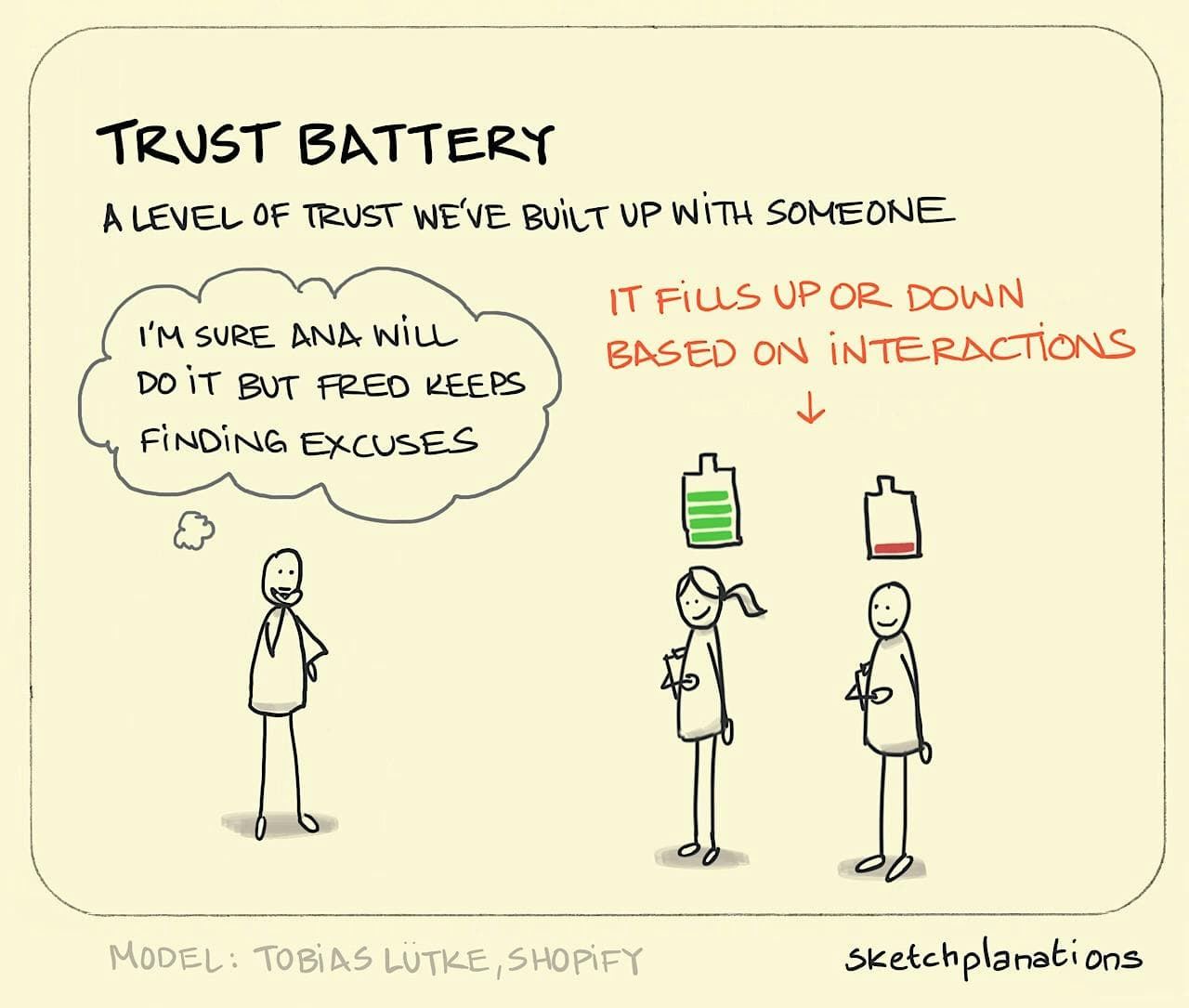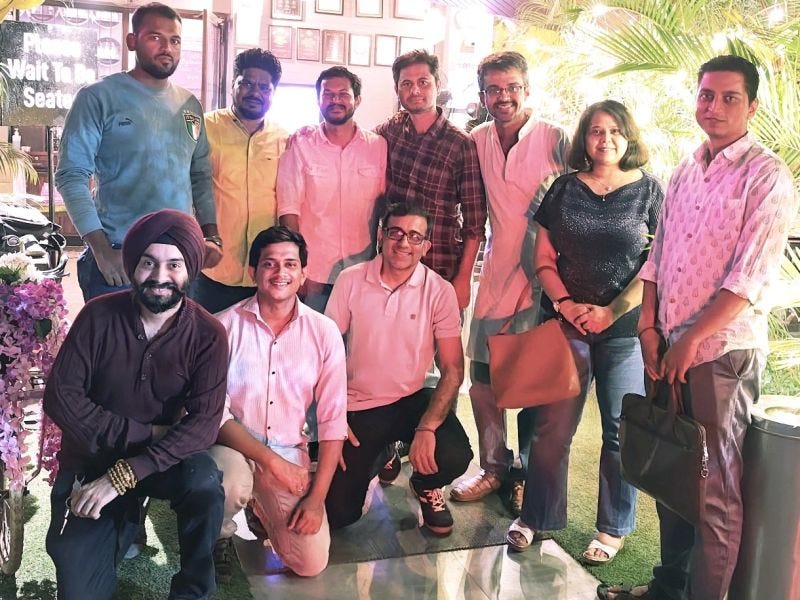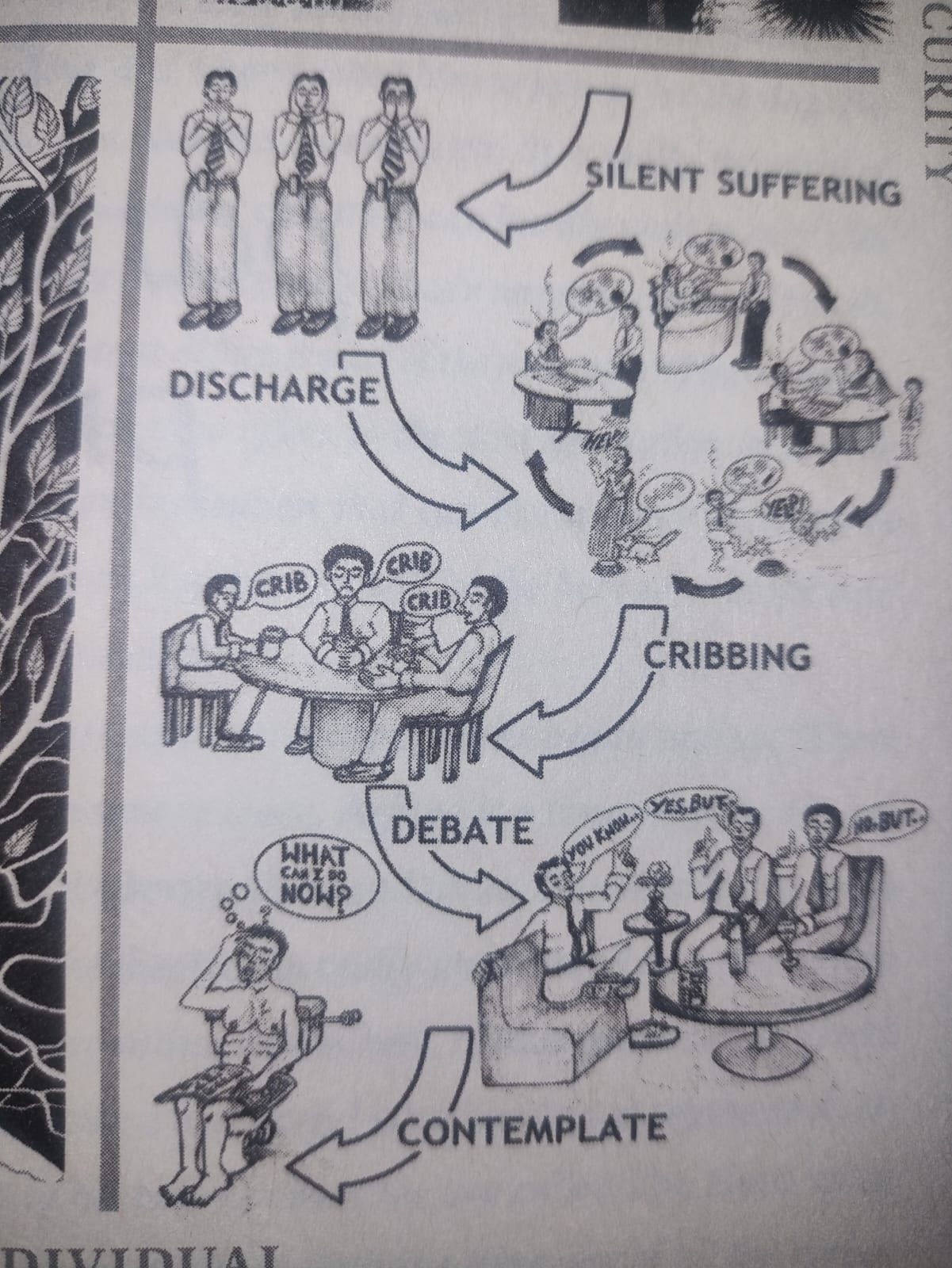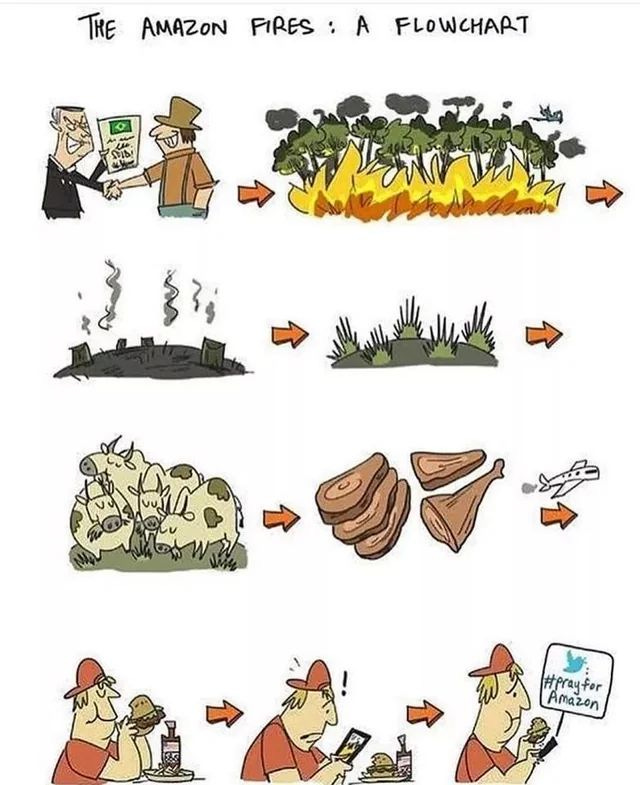
Hello!! My name is Venky and I am eternally grateful for lavishing your attention to Agribusiness Matters, an endeavour to discover systems thinking in the real world - crumbling food and agriculture systems in an age of runaway Climate Change. If you like what you see, I encourage you to subscribe and receive exclusive perks - invitations to join ABM Townhalls, special discounts on ABM Publications, Global Agritech 101, 201 cohort courses and more.
State of Agritech - 19th November 2024
1/ The launch of the AgDX Index - Agri Digitalisation Framework
A new “public good” framework intends to evaluate how each Indian state is faring in their agri-digitalization journey. Can this framework address systemic problems in Indian Agriculture?
2/ Reflections from Pune Agripreneurs Meet
Entrepreneurship is a lonely journey. Meetups remind us of an oft-forgotten fact: We are not alone.
3/ State of Food Systems in COP 29
The quality of conversations about Food Systems in a conference is directly proportional to the food served.
4/ Changemakers’ Heroic Journey
If you are a changemaker working in food and agriculture systems, your inner life might be somewhere along this journey.
1/ The launch of the AgDX Index - Agri Digitalisation Framework
Many moons ago, crank British economist EF Schumacher narrated a story in a lecture that remains etched in my heart.
“I learned a lesson during the war when I was a farm labourer up in Northamptonshire and one of my jobs every morning before breakfast was to go up a hill to a field nearby and count the cattle. So I trotted there, half asleep, and counted thirty-two and then I went down to the farm, touched my cap to the bailiff and said, “Yes, sir, thirty-two” and he said, “Go and have your breakfast”.
One day, when I arrived there, there was an old farmer standing at the gate and he said, “Young man, what do you do here every morning?” I said, “Nothing much, I just count the cattle”. He shook his old head and said, “If you count them every day, they won’t flourish”.
So I went back, murmuring to myself, “Those country yokels! How stupid can you get”
I mean, I am a professional statistician - he didn’t know that.
One day I came up there and I counted; I counted again and again, and there were only thirty-one.
I wanted my breakfast so I went down and said to the bailiff, “There are only thirty-one”.
He was very angry and said, “Have your breakfast - we’ll go up there after breakfast”. We did and searched the place and, under one of the bushes, was a dead beast.
I said to myself, “Wait a minute - why have I been here every morning counting them?
That hasn’t stopped that beast dying, has it?”
Excerpted from E. F. Schumacher’s Collection of Essays, “This I believe”Few days ago, The Agri Collaboratory, CGIAR, and The Institute for Competitiveness (IFC) launched AgDx—Agri Digitalisation Framework. I had the opportunity to attend its launch with an amazing coterie of folks shaping the present and future of Indian agri-food systems. I was also lucky to anchor an exploratory conversation around the possibilities that could be realized and the problems that could be addressed when an index of this kind reaches its full potential.
The framework is a six-to-eight-month-old crawling baby, and it would take a while before she develops muscles to navigate the complexity of food and agriculture systems in an Indian context.
Given the nature of the beast that this framework is trying to tame, we had passionate conversations on the irreducibility of the beast.
Is it even possible to measure the state of agri-digitisation in a country where more than 90 % of agriculture happens in an informal economy with illegible systems that take advantage of farmers' incomes not taxed in India?
How can social and cultural indicators be adequately covered in an index of this kind? Harsh Kumar Bhanwala gave a fascinating example: If not for the progressive culture of women of Gujarat, Amul wouldn’t have kicked off in Gujarat. How can the Index evolve to adequately measure the context in which the digitalisation of agriculture is taking place?
There is no doubt about this - There are interesting possibilities when an Index of this kind gets to speed.
In a country like India, there is often conflict between pursuing the national agenda-involving all states, political parties and other stakeholders - and a state’s agenda to fulfil its constitutional obligations on agriculture.
While the former wants to centralize agriculture (ironically despite the profusion of decentralized digital public infrastructure), the latter is working in the opposite direction to resist the centralization of an essential state subject.
Can AgDx Index work with public and private institutional players in providing the moorings for not just competitive federalism, but also cooperative federalism?
To deeply understand the possibilities AgDx could go after, we may need to understand the federal structure underlying policy.
“The Union Minister will soon realise that central government policy is restricted by the fact that agriculture and land are in the domain of the states; animal husbandry and fisheries where real growth is visible are separate ministries; the budgetary allocations are controlled by the Ministry of Finance; and an outdated inflation policy is dictated by the RBI.” - Ajay Vir Jakhar (Source)
These institutional silos often play out viciously when the states have to share data with the Centre. Agristack is unable to find traction in non-BJP states. Here is a classic problem statement I’ve seen in close quarters: Curbing sales of spurious seeds failed miserably in my home state of Telangana because of this lack of non-consensual arrangement between the Center and the State.
To build a consensus framework between the Center and the State, we need trustable public scorecards and indices that can assess and accelerate the penetration, maturity, and impact of Agri Digitalisation across Indian States using publicly available data.
Can AgDx grow up to improve the trust battery between the Center and the State?
It is going to take a while before private players understand the potential of AgDx and contribute towards shaping the playground where agritech entrepreneurs play their technological games. As we speak, India has bravely attempted to enter into contract farming agreements with farmers in states including Tamil Nadu, Bihar, Jharkhand and Gujarat to grow pulses (Tur and Masur) on 1,500 hectares of farmland for its food security needs.
Given the historically poor score of trust battery in enforcing contractual clauses with farmers in the context of contract farming, can AgDx indices help in addressing the structural gaps in physical and digital infrastructure?
What kind of consent-sharing protocols do we need to share data between public and private problem-solvers? What secret sauce needs to be included to develop a trust battery towards the AgDx index in the first place?
Lot of fascinating possibilities. I will explore this further.
2/ Reflections from Pune Agripreneurs Meet
Entrepreneurship is a lonely journey. You are often not sure whether you are driving upstream or downstream.
And so when you discover a safe space where you can bare your soul and share your deepest joys and struggles, you discover that you are not alone.
You discover the invisible power of kinship that helps you move mountains.
One of my long-term goals at Agribusiness Matters is to strengthen the Indian agritech ecosystem for brave agripreneurs to succeed while they build meaningful, sustainable businesses that can address India's agrarian crisis that is begging for a complete overhaul.
This was a beautiful evening. While one friend shared her journey in fundraising, another friend shared his painful learning in closing his venture. We shared our aspirations, struggles and our joys.
Yesterday, someone from Udaipur pinged me asking when will I come to Udaipur to do agripreneurs meet. I want to travel to every Tier-2/Tier-3/Tier-4 city in India and do these agripreneurs meetups, besides hosting them in metropolitan cities. Let’s see:)
3/ State of Food Systems in COP 29
I have never been to any COP event and honestly don’t understand why we need to go so far to explore avenues of coordination and cooperation among the Global South. When the problem lies in your backyard, why search for solutions elsewhere?
While I follow Oliver Camp’s Food Systems Live Document for significant updates about food systems, I discovered Nika Moenini asking a super interesting question
“With delegates hyped up on sugar, alcohol, and processed food, lack of sleep and no time outside, how can we make sound decisions on the future of healthy, nutritious, sustainable food systems?”
Raising the bar of the food served is a great way to improve the quality of conversations about the food system. Most of the regenerative/organic farmer-led conferences I have been to have had great food and it was evident in the depth of the conversations I have had.
Can we raise the bar in the food served before we talk about the food system?
4/ Changemakers’ Heroic Journey
I get plenty of emails from folks who dream of careers in agriculture. They are in various stages of their life. Some want to volunteer, some want to ask me questions and engage with my writings; some want to do part-time. And many are dreaming of careers in agriculture.
In my Yoga Mentor Raghu Ananthanarayanan's book, there is an image that beautifully describes the journey individuals undertake in their social context to discover their true purpose and potential. I've taken this journey and you too, are probably undertaking it, without realizing it.
1. Silent Suffering:
You are unable to articulate the seeds of change you carry within yourself. Whenever you find yourself in a group, you feel that the conversations are utterly boring. And yet, you are unable to walk out. You suffer quietly.
2. Discharge
You unleash your frustration through temporary catharsis. You let it out on a violent Netflix movie. Or you get drunk and make jokes about your work, your peers and your boss in the safety of your friends. You forget everything you said at night and get ready to play your "Actor" role the next morning.
3. Crib Clubs
You form your pet crib clubs where you complain about your disagreement with your current reality. You critique the system, share whatsapp forwards and form strong opinions about what you are deeply passionate about. However, you keep these opinions to yourself. You are unwilling to share them in public and bear the consequence of voicing these opinions.
4. Debating Societies
This is an improvement over crib club where you discuss issues at length. While at crib clubs, you are simply critiquing, at debating societies, you do deep intellectual thinking about what you are deeply passionate about. Though this is of a higher order than "discharge" or "crib clubs", you are largely okay to be dissipative, as your intellectual work doesn't lead to any change on the ground.
5. Kaizen/Small Improvements
You try and do what best you can do over weekends, chasing incremental changes. You articulate the problem and define solutions within your boundary of thought and action. While you crave deeper change, you are unable to voice it out and are okay with bringing small changes within the status quo. You do know at the heart of it, small kaizen changes are insufficient.
6. Contemplate
Only when you go past these five stages and are willing to cross the river of threshold, you are willing to look within and contemplate and ask fundamental questions about your life.
1. Who are you?
2. What do you value in your life? Remember valuing is a verb. Not a noun.
3. Where are you in your life?
4. In doing what you are doing in your life, what are you really doing?
So, what do you think?
How happy are you with today’s edition? I would love to get your candid feedback. Your feedback will be anonymous. Two questions. 1 Minute. Thanks.🙏
💗 If you like “Agribusiness Matters”, please click on Like at the bottom and share it with your friend.



